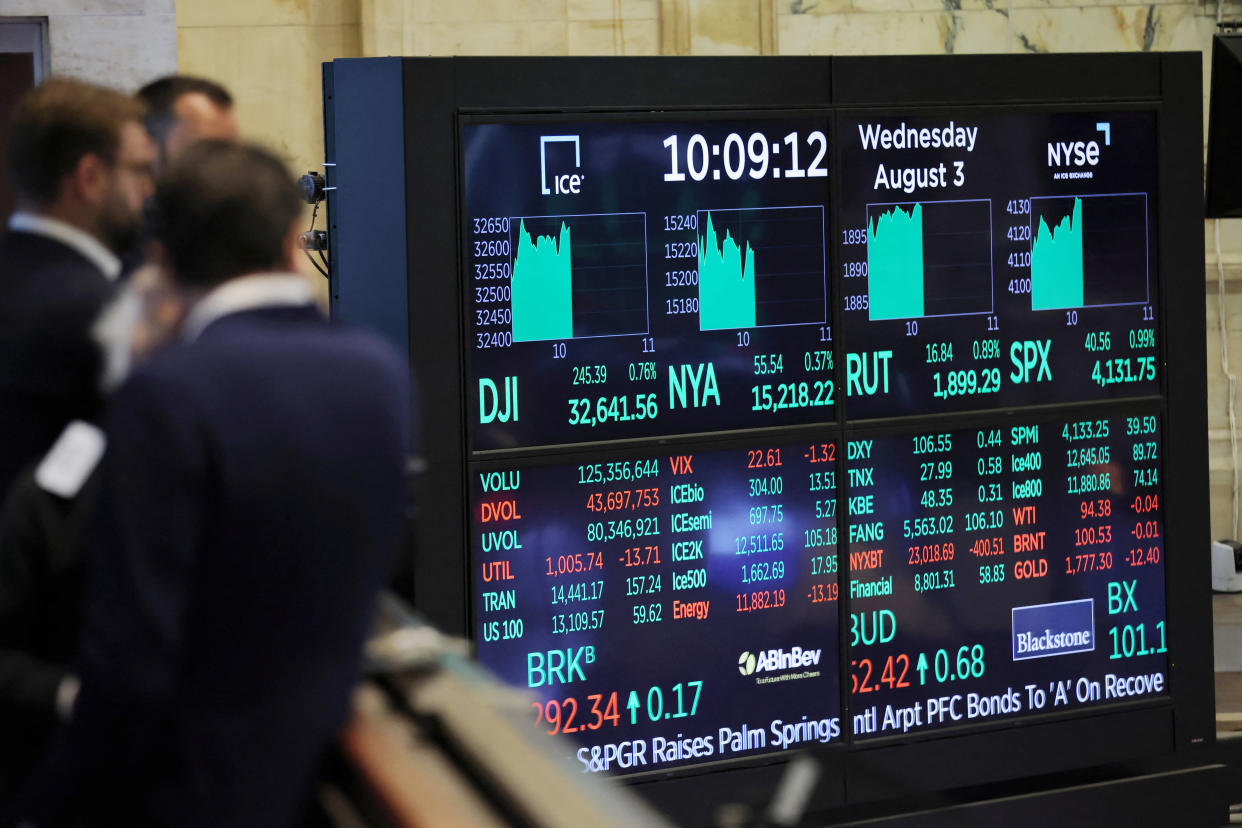Pensions may seem like a relic of the past, but they can be a crucial booster to today's economy, according to a new report.
For instance, pension payments helped to support 6.8 million jobs in 2020 and $422.2 billion in labor income, according to a new study from the National Institute on Retirement Security using Census data. They also provided $62.9 billion in federal tax revenue.
Overall, pensions provided $1.3 trillion in economic activity during that first year of the pandemic when business conditions were uncertain.
The findings underscore how pensions may provide a more reliable return to the economy than 401(k)s — especially in recessions — according to the study’s authors, even though 401(k)s are now the dominant retirement plan offered in the workplace.
“When a retiree receives their monthly benefit and they know they can rely on it continuing for future months, it impacts the spending in their communities,” Dan Doonan, executive director of the National Institute on Retirement Security, said, “as well as maintaining their standard of living.”
‘Multiplier effect’
The average pension benefit payment was $11,934 per year in 2020, or about $994 per month. Even though the sum may seem small, those pension payments can drive a local economy through the “multiplier effect,” according to Ilana Boivie, senior economist with the International Association of Machinists and Aerospace Workers and author of the study.
For every dollar paid out in pension benefits, $2.13 is generated in the local economy, according to the study calculations.
"You’re getting more than twice your impact,” Boivie said.
This is how that looks. If a retired firefighter uses a pension check to buy a new lawnmower, the local hardware store owner sees a bump in sales. If multiple retired firefighters buy lawn mowers, then the owner may need to hire someone else to support those purchases.
"The owner and the new staff then spend that new money in the economy as well,” Boivie added. “That money recycles over and over again through the economy just because of that one check to a retiree.”
Job impact
According to the study, pensions supported numerous jobs in 2020 even if the industries they bolstered were skewed because of the changing needs and business environment during the pandemic.
For instance, pensions supported 662,188 jobs in hospitals, physician’s offices, and community care facilities.
“With COVID, if people were spending money, it was on, sadly, hospitalizations,” Boivie said.
Pension expenditures also bolstered the office and administrative support occupation category, which largely moved to remote positions during the first year of the pandemic. Pension payments supported 678,678 jobs in that field, with employees receiving $42.25 billion in wages and bonuses.
Pension spending also boosted the restaurant industry, supporting 547,819 workers in limited-service restaurants and 227,553 in full-service restaurants.
“Before the pandemic, people were more likely to go out to eat,” Boivie said. “When the pandemic started, we were eating takeout.”
Pension spending in future recessions
Key differences between 401(k)s and pensions help explain why the latter may be a better economic engine, especially during downturns.
401(k)s and similar plans — lumped together as defined contribution [DC] plans — have employers and employees contributing funds. Retirees don’t have a set retirement amount because it depends on how much they can contribute during their retirement years and on their account balance when they withdraw, which fluctuates with the performance of the stock market.
With pensions — also called defined benefit [DB] plans — funds are provided only by the employer and retirees have a set benefit amount each month. Defined benefit plans also “tend to get better investment returns than individual definition contribution accounts,” Boivie said.
“A lot of the resources from 401(k)s may not go into retirement,” Doonan added. “With [pension] plans, all the dollars really do go into retirement. They don't go up and down with the broader economy.”
That means retirees with pensions can get through varied economic conditions, including a recession, better than those who rely on a 401(k).
“As opposed to [401(k)] money, even if your account hasn’t seen a hit, you may be fearful to spend that money because you don’t know what’s going on with the economy,” Boivie said. “You know that a pension check is coming, so you can make the same purchases you were making pre-recession.”
Ella Vincent is the personal finance reporter for Yahoo Finance. Follow her on Twitter @bookgirlchicago
Click here for the latest personal finance news to help you with investing, paying off debt, buying a home, retirement, and more
Read the latest financial and business news from Yahoo Finance
Download the Yahoo Finance app for Apple or Android
Follow Yahoo Finance on Twitter, Facebook, Instagram, Flipboard, LinkedIn, and YouTube
Source: Read Full Article


